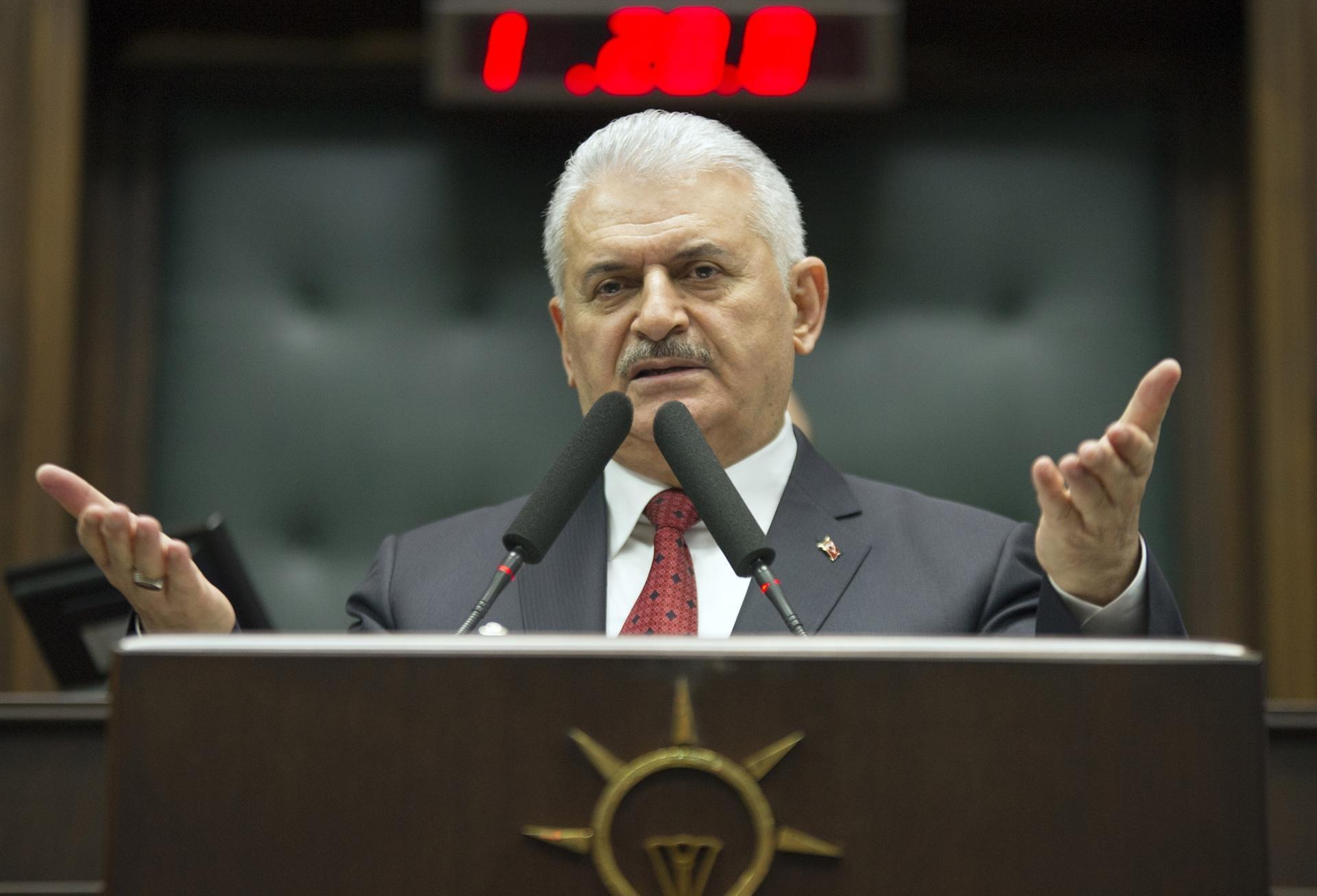
Turkey has cleared all militants of the Syrian Kurdish People’s Protection Units (YPG) from the Afrin side of the border, Prime Minister Binali Yıldırım has stated, adding that Afrin city is now surrounded in a crescent-like shape.
“We leave behind the 39th day in our ‘Operation Olive Branch.’ Our soldiers continue to carry out the operation from land and air with utmost determination. Afrin has been surrounded by a crescent-like shape,” Yıldırım said on Feb. 27, addressing the ruling Justice and Development Party’s (AKP) parliamentary group.
The village of Karmanluk in Shaykh al-Hadid, northwest of Afrin city, as well as the upper and lower parts of the village of Senare were reportedly cleared of YPG militants on Feb. 26. With the securing of that land, a crescent-shaped corridor stretching across the northwestern Idlib province and the Aleppo province’s Azaz district connected two areas held by Syrian opposition forces.
In February 2016, the connection between Idlib and northern Aleppo was cut after Syrian President Bashar al-Assad’s forces captured the Aleppo highway, which also goes to the southern Turkish province of Kilis, as well as another highway through the towns of Qabasin and Ratyan, north of Aleppo.
Turkey believes that reconnecting the opposition-held Idlib and the area under Free Syrian Army (FSA) control, backed by the Turkish army, will strengthen its border security against the YPG.
Yıldırım said the FSA and the Turkish army are “gaining ground in the region while Turkey’s forest guards and Police Special Operation Units secure the order behind them.”
Since the launch of the operation on Jan. 20, the Turkish military and the FSA have captured 115 locations, including one district center, 87 villages, 20 strategic mountains and hills, and one YPG base, according to the military.
“The terrorists in Afrin, and those brought there from outside regardless of their origins, along with the external forces who back them, will be completely routed,” Chief of General Staff Hulusi Akar said on Feb. 27 during a visit to the southern Turkish province of Hatay on the border with Syria.
A total of 2,083 YPG militants have been “neutralized” since the launch of “Operation Olive Branch” in Afrin, the Turkish General Staffsaid in a statement on Feb. 27. The Turkish authorities use the word “neutralized” in statements to imply that the militants in question surrendered, were killed, or were captured.
Eastern Ghouta and UN resolution
The United Nations Security Council adopted a resolution calling for a 30-day ceasefire in Syria on Feb. 24, but Yıldırım claimed that the resolution was “clearly about the humanitarian situation in Eastern Ghouta” and excluded Turkey’s Afrin operation.
“There is a cleaning operation against terrorist organizations to save civilians living there [in Afrin], not an operation against civilians there. The focus of the resolution was not operations against terrorist organizations, but to end the massacre of civilians in Eastern Ghouta,” he said.
Yıldırım added that Ankara sees the U.N. decision “positively” as it called for a cease-fire to distribute humanitarian aid and evacuate hundreds of people from Eastern Ghouta, which has been under a brutal siege from the al-Assad regime.
Home to 400,000 residents, Eastern Ghouta falls within a network of de-escalation zones — endorsed by Turkey, Russia and Iran — in which acts of aggression are expressly prohibited.
“We take the U.N. decision positively. But we have always been voiced our concerns. We have called out for the end of this violation [of human rights in East Ghouta],” Yıldırım said, noting that despite the cease-fire decision Syrian regime forces have continued to attack the area.
“There are serious claims that chemical weapons have also been used … We have concerns that the violence in East Ghouta will deepen further,” he said.